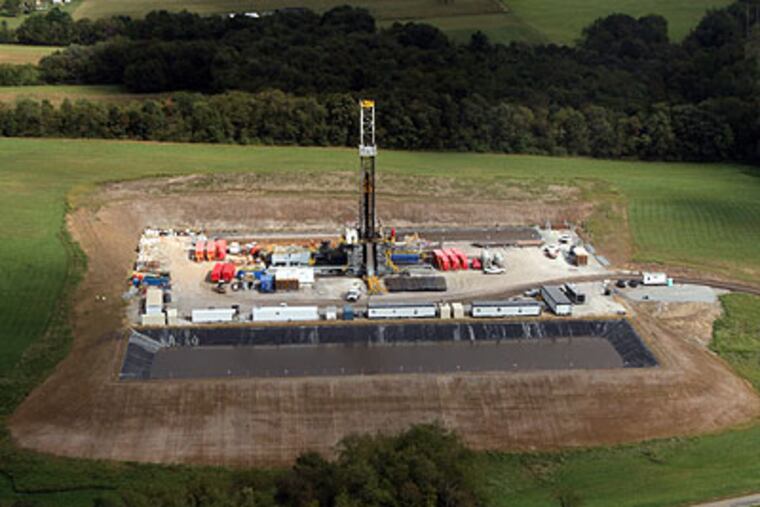Inquirer Editorial: First, protect our water
The multistate agency that governs the Delaware River basin has made a sensible decision to continue a moratorium on natural-gas drilling in the watershed. But that has put the Delaware River Basin Commission at odds with some very powerful forces, including state capitals that provide its funding.

The multistate agency that governs the Delaware River basin has made a sensible decision to continue a moratorium on natural-gas drilling in the watershed. But that has put the Delaware River Basin Commission at odds with some very powerful forces, including state capitals that provide its funding.
Fortunately, aside from a direct threat that wasn't carried out by New Jersey to yank its contribution to the DRBC, the agency hasn't been targeted because of its policies on drilling in the Marcellus Shale formation.
But the impact of having three of its five member states shrink or stop their payments to the DRBC could threaten the region's water resources if the cuts cripple the DRBC's ability to do its job. Payments to the DRBC from Pennsylvania, New York, and the federal government are down.
Partisan gridlock at the federal level has made Washington the DRBC's top deadbeat - with $9 million owed, going back more than a decade. That problem is unlikely to be resolved soon.
Gov. Corbett, a major supporter of shale drilling, contends that he's only asking the DRBC to share in the belt-tightening that's affecting every program that Harrisburg bankrolls. But even given its pro-drilling stance, the Corbett administration should give a higher priority to the public-health needs of the 15 million Pennsylvanians who rely on the watershed for drinking water.
Starving the DRBC for funding is no way to try to influence public policy, certainly. Whether the moratorium is allowed to expire should be guided by the best science possible, which at this point still suggests that shale drilling poses a substantial risk to the region's water supplies.
Indeed, Delaware Gov. Jack Markell has put the brakes on lifting the moratorium, stating that pollution from the chemical-laced drilling process would leave "freshwater supplies likely requiring generations of effort to clean up."
Pennsylvania, chief among the DRBC's backers, should find a way to restore, or at least bolster, the agency's funding. Since Harrisburg officials finally got around to generating some revenue for state coffers from a shale-gas drilling fee, the state should be in a stronger position to up its DRBC aid.
Without question, the DRBC has a vital role to play in monitoring both the shale-drilling issue and other water quality concerns - the very reasons the agency was created by government compact a half-century ago.
Maintaining the agency's robust oversight ability will be vital for as long as the millions who call this region home need to quench their thirsts.